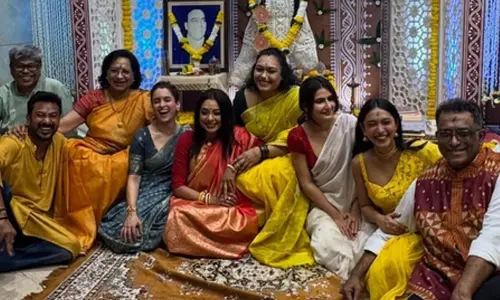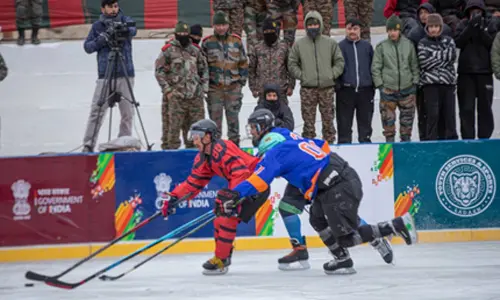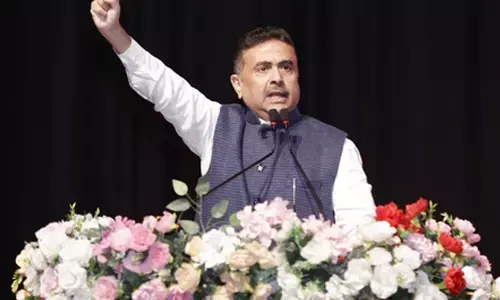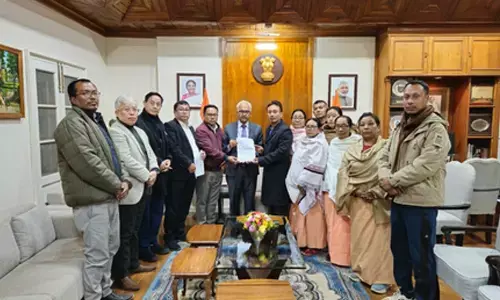Understanding Triple Talaq
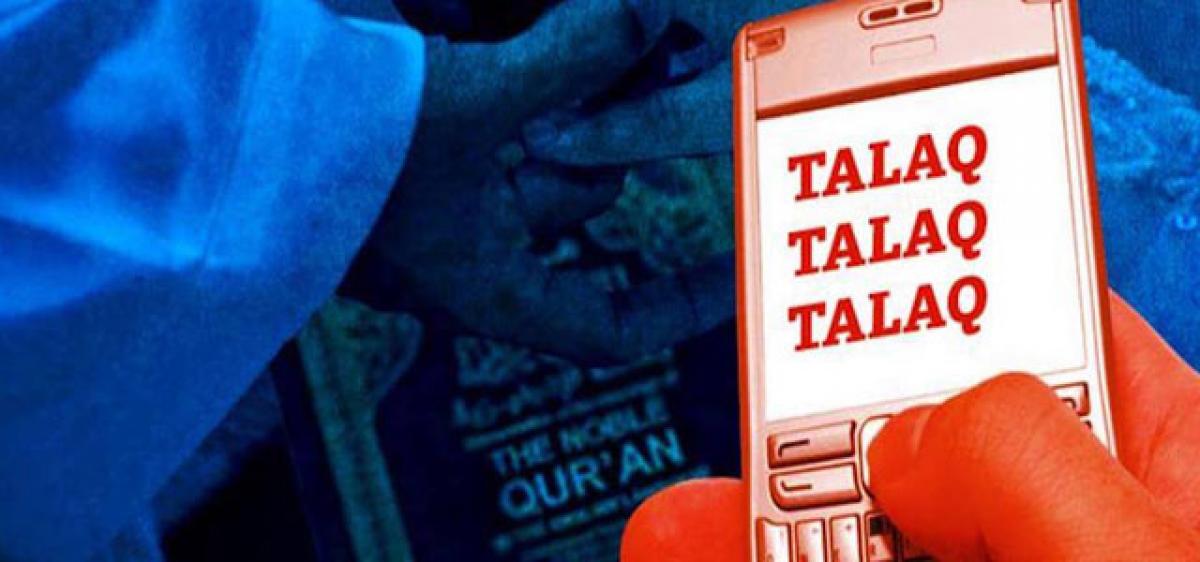
Imagine living with the mental insecurity those years of your marital alliance can be ended just by the utterance of three words. That\'s exactly what Indian Muslim women feel. The All India Muslim Personal Law Board (AIMPLB) recently told the Supreme Court that the court had no jurisdiction to hear petition challenging the practices of triple talaq, nikah halala and polygamy.
Imagine living with the mental insecurity those years of your marital alliance can be ended just by the utterance of three words. That's exactly what Indian Muslim women feel. The All India Muslim Personal Law Board (AIMPLB) recently told the Supreme Court that the court had no jurisdiction to hear petition challenging the practices of triple talaq, nikah halala and polygamy.
The Board said the validity of Mohammedan Law, founded essentially on the Koran and sources based on it, could not be tested on the particular provisions of the Constitution. It said, the petitions, filed by a plethora of Muslim women against the practices, were misconceived.
The preamble of the Constitution clearly enshrines values of liberty of thought, expression, belief, faith and worship,” the AIMPLB argued in an affidavit filed before the court.
But till today, India's 90 million Muslim women face the threat of a sudden, oral, and out-of-court divorce.
Background
The government had earlier opposed the AIMPLB stand in court that triple talaq was intended to save the family from delayed justice in conventional courts and to avoid mud-slinging in public.
- The Board had contended that concern and sympathy for women lay at the core of polygamy. That it was a better option for a “barren” wife to allow her husband to marry a second time than let him indulge in a “mistress”.
- The Centre had countered that in a secular democracy, any practice which left women socially, financially or emotionally vulnerable or subject to the whims and caprice of men folk was incompatible with the letter and spirit of Articles 14 and 15.”
What is triple talaq?
- ‘Triple Talaq’ is a procedure of divorce under the Sharia Law which is a body of the Islamic law.
- Under this, a husband can divorce his wife by pronouncing ‘Talaq’ thrice in the presence of two witnesses to divorce his wife.
- It is very quick, easy and effective.
- Recently, Muslim men have been using other forms of communications such text messages and emails in order to divorce their wives.
- The number of impoverished Muslim women has risen as a result of a rise in oral divorces in recent times.
- Many Muslim women are uneducated and cannot provide for themselves, thus, triple talaq only serves to magnify their hardships.
- The husbands can use it to their advantage and divorce their wives over petty arguments or simply because they are seeing other women.
- Frivolous reasons such as poor culinary skills have been known to be a cause of divorce.
- Living as a divorced woman in a highly patriarchal and judgmental society like India is very difficult.
- To be a divorced woman in India invites scorn in our society, where marriage is considered both sacred and necessary to be engaged with different social circles.
- Comprising approximately 20% of the total population, Muslims make up the largest minority group in India.
- The Muslim Personal Law (Sharia) Application Act 1937, governs the Muslims’ family laws in India.
- While many other Muslim countries such as Pakistan, Bangladesh, Turkey, Egypt, etc. have banned triple talaq either impliedly or expressly, the practice is still valid in India.
- Some of these countries now require an approval by the court for a couple to be considered as divorced.
- Triple talaq is also known as Talaq-ul-Bidat.
- According to Muslim scholars, Talaq-ul-Bidat is only effective when a man utters the word talaq thrice over a period of three consecutive months.
- He has to declare talaq only during the time of Turh (a woman’s menses-free period).
- Once the words are spoken for the third time over a period of three months, the marriage is dissolved instantly.
- The divorced couple can remarry only after the woman has married and divorced another man in the interim period.
- This process of an intervening marriage is known as the Halala.
- The full procedure is not followed in India where merely repeating the word talaq three times leads to a valid divorce.
- The plight of Muslim women is exacerbated by the fact that Muslim law is open to interpretation by the Muslim clergy because it is not codified.
- Muslim scholars have questioned the validity of triple talaq because it does not find mention in the Quran, which supports the three-month procedure with an opportunity for reconciliation.
- Some Indian cases suggest that the divorce must be “for a reasonable cause” but a fog of uncertainty prevails over Muslim personal law generally.
- Recently, Shayara Bano has filed a petition to the Supreme Court of India demanding the abolition of triple talaq and polygamy under Muslim law in India.
- Various Muslim campaign groups who believe that these practices are discriminatory in nature support the move.
- There is an argument to the effect that triple talaq violates Part III of the Indian Constitution enlisting fundamental rights, in particular, discrimination and equality before law.
- The gist of the arguments forwarded in the case is that triple talaq is unconstitutional.
- The move was met with a strong opposition by the All India Muslim Personal Law Board.
- The Board argues that triple talaq is a matter of culture and Islamic beliefs.
- They see the petition as an attempt to interfere with Islam by the Hindu Nationalist BJP government in India.
- The opposition is religious and also argues that fundamental rights do not apply to the personal law of Muslims in India.
- They state that the Constituent Assembly deliberately refrained from imposing a Uniform Civil Code because the Assembly was aware of the differences in Muslim personal law.
- They insist that Muslim women already have adequate legal protection and cite legislation such as Muslim Women (Protection of Rights on Divorce) Act, 1986 in their defence.
- While it is important to respect the rights of religious and cultural minorities in a diverse and secular country like India, it is also critical to ensure that such practices do not abuse basic human rights.
- Triple talaq diminishes the ability of Indian Muslim women to live with dignity.
- The prevailing practice instils fear and anxiety in the minds of countless Muslim women who experience even slight difficulties in their marriages.
- Arguments are common to all marriages and many experience a rough patch. However, divorce on the whims and fancies of men are a disgraceful practice.
- Since triple talaq has been abolished in 22 Muslim majority countries, it is difficult to see the need to hold on to it.
- Muslim personal law is in need of a comprehensive review.
- Perhaps, India can draw a procedure more suitable to its Muslim population by reflecting on the law in other Muslim states like its neighbours.
- Codification of Muslim law will also help to reduce the uncertainties around it.
- Effective reforms are necessary and much awaited in the territory of Muslim personal law.
Facts
- Census 2011 shows that Most Muslim women married too early
- 13.5% were married before 15 years of age
- 49% married between 14 and 19 years.
- 18% married between 20 and 21 years
- Oral divorce is the easiest and commonest method of divorce.
- Out of all divorced women, 65.9% divorced orally.
- 7.6% divorced through letters.
- 3.4% divorced through phone
- 0.8% via SMS & email
- 22.3% through other methods.
Why triple talaq should be abolished?
Triple talaq should be abolished because it is un-Quranic; goes against the spirit of the Constitution and lastly, but importantly, it is unjust and inhuman.
The women protests argue that Quran gives equal right to both husband and wife to seek divorce. But it nowhere allows instant divorce, for it treats marriage as a serious social relationship, entered into by two individuals.
There are a number of verses in the Quran that call for attempts to reconcile in the case of marital discord. There is a verse calling for mediators, from families of both sides, if reconciliation between husband and wife is not working out. The verses clearly call for reconciliation and mediation process to be carried out over a period of 90 days.
It is not a debate created by the media as suggested by some. Most case studies shows that how women were rendered homeless overnight, left destitute with no help for the children either, after being divorced orally, in an instant. Most women are traumatized for life and find it difficult to recover from the shock.
- In most cases, the women were not even present when the husband uttered talaq thrice. In spite of protests by Muslim women and activists world-wide the procedure is still prevalent in most countries.
- There are several instances where ‘triple talaq’ has enabled husbands to divorce their wives arbitrarily, devoid of any substantiation.
- According to a study, 92% of Muslim women in India want oral triple talaq to go.
- Oral talaq or ‘triple talaq’ delivered through new media platforms like Skype, text messages, email and WhatsApp have become an increasing cause of worry for the community.
- The ‘triple talaq’ has been abolished in 21 countries including Pakistan, but is still prevalent in India.
- The Centre reasons that these practices are against constitutional principles such as gender equality, secularism, international laws etc.
- The government also argues that when these practices are banned in Islamic theocratic countries, the practices could have absolutely no base in religion and are only prevalent to permit the dominance of men over women.
Way ahead
- The Muslim body has called for judicial restraint as the issues in the petitions before the court fell within the legislative domain.
- The Muslim Board of AIMPLB conference in November had a note of urgency never perhaps seen before.
- At the end of the event, in which more than 75 women delegates and 50 women members were said to have participated, the Board unanimously decided that triple talaq would stay.
- But there were some concessions. The conference concluded with a decision to launch AIMPLB women’s wing.
- Of the Board’s 251 members, 40 are women, nine of them on the executive committee.
- So the decision to have a separate women’s wing is not to show the world that the Board suddenly cares for women or has succumbed to pressure, says Asma Zehra, executive member of AIMPLB, who also heads the women’s wing.
- Instead, Zehra says, the move aims to spread awareness among women about the rights that Islam has given to them.
- On 1 December,2016 the Board launched its first helpline for women.
- On the day of its launch, the helpline received 3,500 calls.
- Every day, the helpline receives between 1,200 and 1,500 calls, mostly around the issues of dowry, inheritance, domestic violence and talaq.
- The helpline is available in nine languages; most calls are in Urdu, Malayalam, Kannada and Tamil.
- “The helpline is meant to bridge the gap between women and AIMPLB,” Zehra says.
- The emphasis on bridging the gap stems out of sustained criticism of the Board for being a male preserve that is out of touch with the ground reality of the lives of common Muslim women in the country.
- In response to a March 2015 survey by the Bharatiya Muslim Mahila Andolan (BMMA), in which 97% of women respondents said they were opposed to triple talaq, polygamy and nikah halala, the AIMPLB introduced its own signature campaign to gauge if Muslims wanted amendments to the Shariah.
- It says this signature campaign showed that an overwhelming majority of Muslim women do not want any change in the Shariah.
- The Board is contemplating suggesting a jail term (which would involve government legislation and the judiciary) or imposing a fine or ostracism for those who use triple talaq without “genuine reasons”.
- “Those who are misusing triple talaq should be punished,” says Jamiat Ulema-e-Hind general secretary Maulana Mehmood Madani. Yet, he adds, the rights of women are not being compromised because of the existence of triple talaq.
- “Triple talaq is an option for those who don’t want to wait for three months. If you pick the cases of how the provision is being abused, then you should also see cases where it has helped women.
- Other than triple talaq, options for divorce in Islamic law give a period of three months for parties to reconcile. The pronouncing of talaq is spread over three months, instead of being uttered in one go.
- Most AIMPLB members this reporter spoke with say they are against the misuse of triple talaq.
- In fact, they say, the word ‘talaq’ itself is considered bad in Islam, with the Quran as well as the Hadith (the sayings of the Prophet and practices from his daily life) referring to incidents that show how the religion views divorce in poor light even though the option is available.
- “Islam has given divorce as the last option only if nothing else works out and there is no way the marriage can survive…but it is not the preferred route,” says Mufti Fuzailur Rahman Hilal Usmani of the Darussalam Islamic Centre, Punjab.
- The Quran in multiple instances forbids a man from seeking pretexts to divorce his wife, but Islamic law nevertheless gives men the primary right to dissolve marriages.
- However, in the absence of serious reasons, no man can justify a divorce, according to the Quran and the Hadith.










